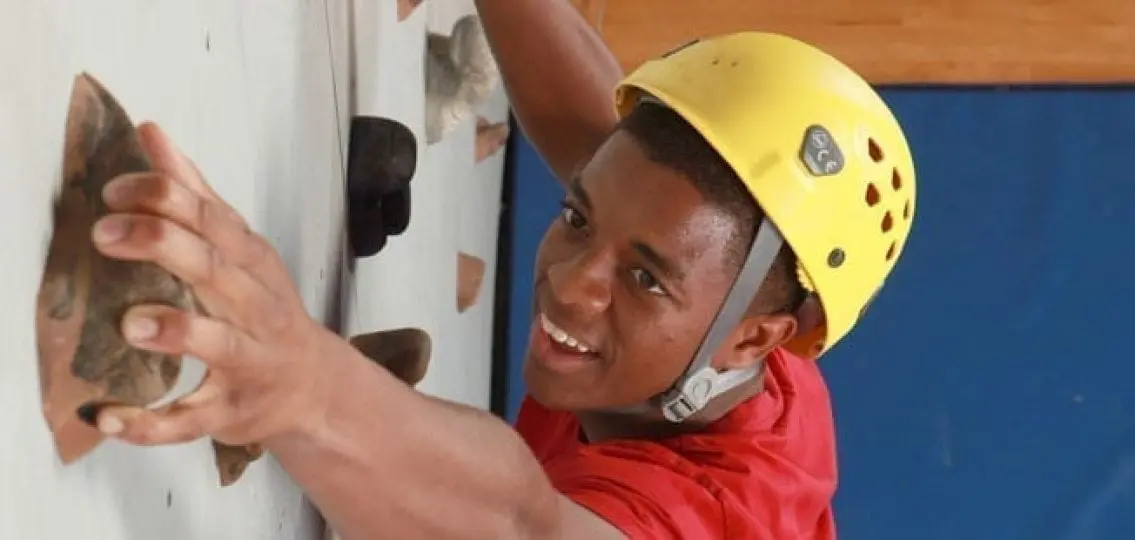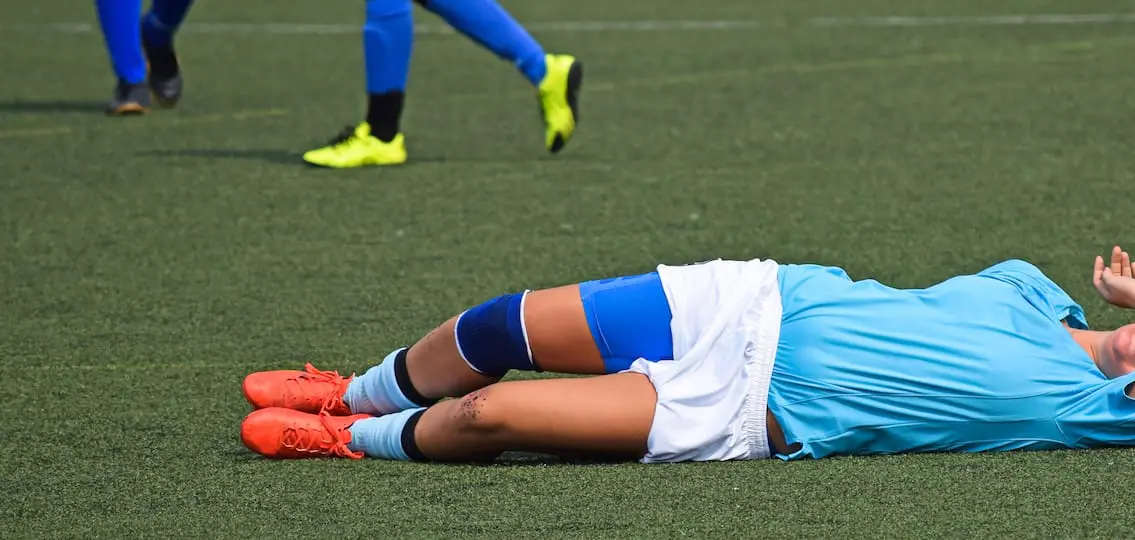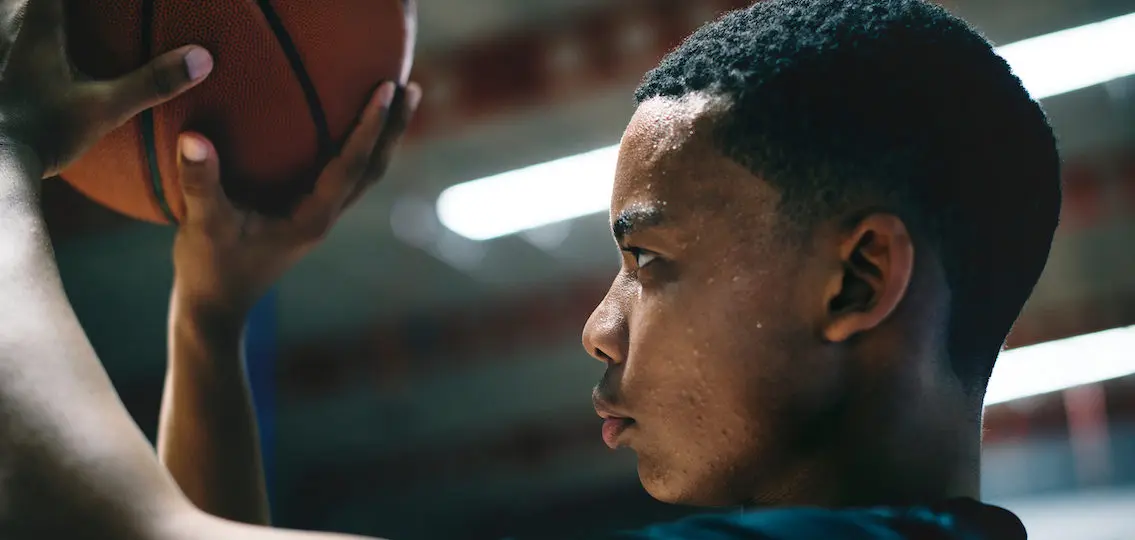Several weeks ago, I met a friend for lunch. She couldn’t stop yawning.
“Sorry,” she apologized. “I didn’t fall asleep until after 2 a.m. Will didn’t play well last night, and he was really upset.”

Though her 15-year-old football-playing son had an otherwise good season, my friend worried that his focus on this one lackluster performance would keep him from an activity he had previously enjoyed.
“He’ll finish out the season, of course,” my friend said, “but I’m afraid he’s not going to want to play again next year.”
As parents, we’re all aware of the physical and mental benefits of athletics.
Not to mention the camaraderie and social skills that are developed by working toward a common goal. Add in the old “it looks good for college” mantra, and participating in a sport takes on additional significance.
But, at the same time, according to a poll from the National Alliance for Youth Sports, around 70 percent of kids in the United States stop playing organized sports by the age of 13 because the pressure outweighs the fun.
In their recently published book, Beyond the Scoreboard: Learn It Through Youth Sports, Carry It Through Life, licensed psychologist Dr. Nick Molinaro who specializes in performance and sport psychology and Celeste Romano explore how to help young athletes overcome hurdles of bad performance, maintain their passion for sports, and stay in the game.
“This isn’t a quick fix, but rather a process over time requiring the parent to change their dialogue with their child, which will ultimately change the child’s internal dialogue,” explains Dr. Nick. “I equate this to when our kids are babies and we soothe their every cry. At some point we must teach them to self-soothe, and at some point, for an athlete to remain in sports, they must self-soothe or develop grit.”
What is Grit? How do you foster it in a young athlete?
As parents we often hear the word “grit” tossed around as the missing ingredient in a successful athlete’s game. But what does grit mean, and how can you help your player develop it?
Dr. Nick defines grit as a trait comprised of three key components: passion, perseverance, and a low need for positive reinforcement.
Passion and perseverance
Passion can’t be passed down like eye color, nor can you teach it, Dr. Nick notes, but it can be encouraged. Perseverance, which is the ability to keep going when things aren’t going your way, on the other hand, can be taught through words and actions.
“The more we, as parents, remain growth-minded in our words by focusing on failure as an opportunity to grow, then the more we encourage perseverance,” he says.
The idea of being “growth-minded” links back to the research done by Carol S. Dweck professor of psychology at Stanford University and her colleagues, who found that those with a growth mindset believe that their most basic abilities can be fostered and developed through hard work and determination. Those who have a fixed mindset, on the other hand, see talent alone as responsible for success without acknowledging effort. Often those with a fixed mindset are tempted to give up when things don’t go their way, while others who embody a growth mindset focus on working to improve their skills over time.
Low need for positive reinforcement
That makes sense and sounds straightforward, but how do you help an athlete develop a low need for positive reinforcement?
After all, who doesn’t like a compliment? To foster this, Dr. Nick suggests keeping all critiques specific to the performance.
“For example, say things like, ‘I liked the way you passed the ball out there,’ or ‘I noticed you were anticipating more where the puck was going this time, and you positioned yourself to assist your teammates.’”
Additionally, avoid using harsh criticisms or false positives.
Don’t say, “You played terribly!” or “You did amazing!” If your athlete played well, it’s still important to focus on the effort they put forth rather than solely on the victory.
“Never tie your love or support to how they perform,” he adds. “After a winning game avoid saying things like, ‘I’m so proud of your win!’ Or, if they lose, ‘You guys stunk out there, no wonder you lost!’ Again, focus on specifics. Even if you think responses, like the last example, are indicative of tough love, they truly are telling your child that your love is tied to their performance.”
The danger of linking your affection to performance outcomes only increases an athlete’s need for positive reinforcement.
“Help your athlete find the power in failure, the opportunity to grow as an athlete, and improve their physical and mental skills, which are all necessary for success in every area of their lives,” Dr. Nick suggests.
In my friend’s situation, Dr. Nick advises keeping conversations growth-minded by avoiding the use of false positives in an attempt to restore the child’s feelings.
“Again, no different than teaching a baby to self-soothe, the child must be allowed to experience the angst,” he says. “Too much talk of ‘You are great,’ ‘You are still the best player out there,’ etc., will not do anything but place that child further from developing grit.”
Instead, he suggests asking things like “Where do you think you could improve?” or “What do you need to work on this week in practice?”

Once the athlete has had time to decompress and think about their specific performance—knowing your love is not tied to that performance—they can objectively make goals on how to improve in the future, and ultimately, stay in the game.





